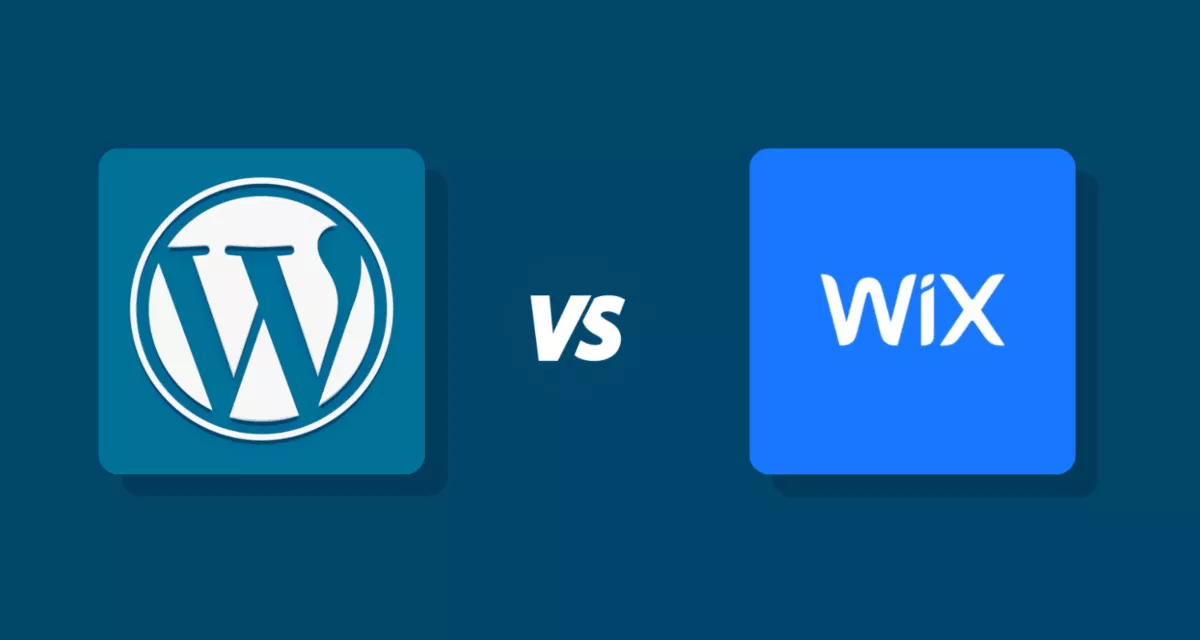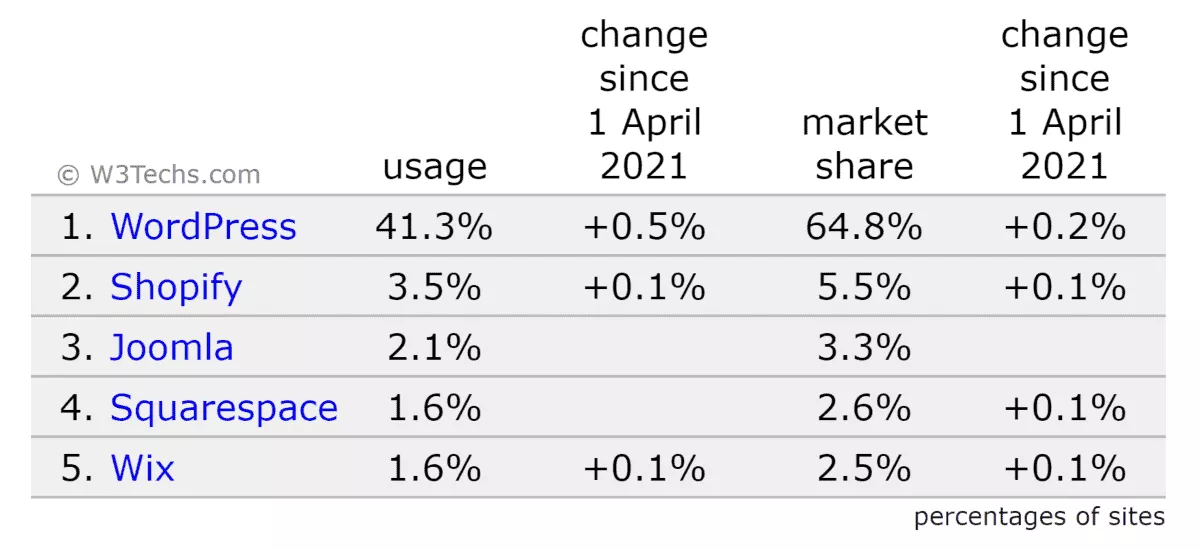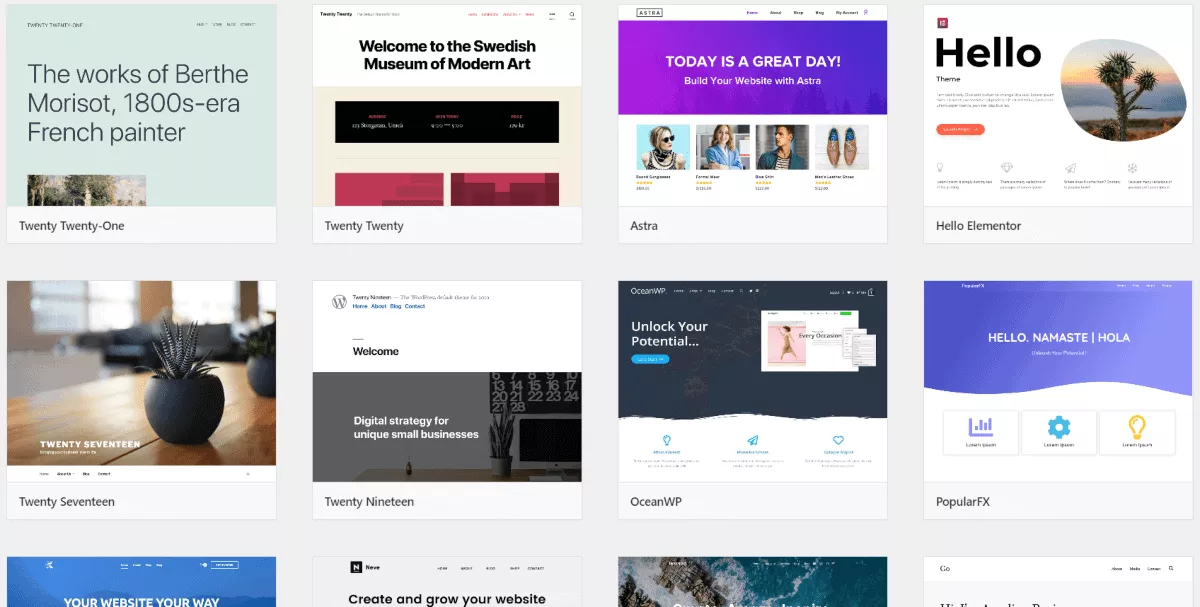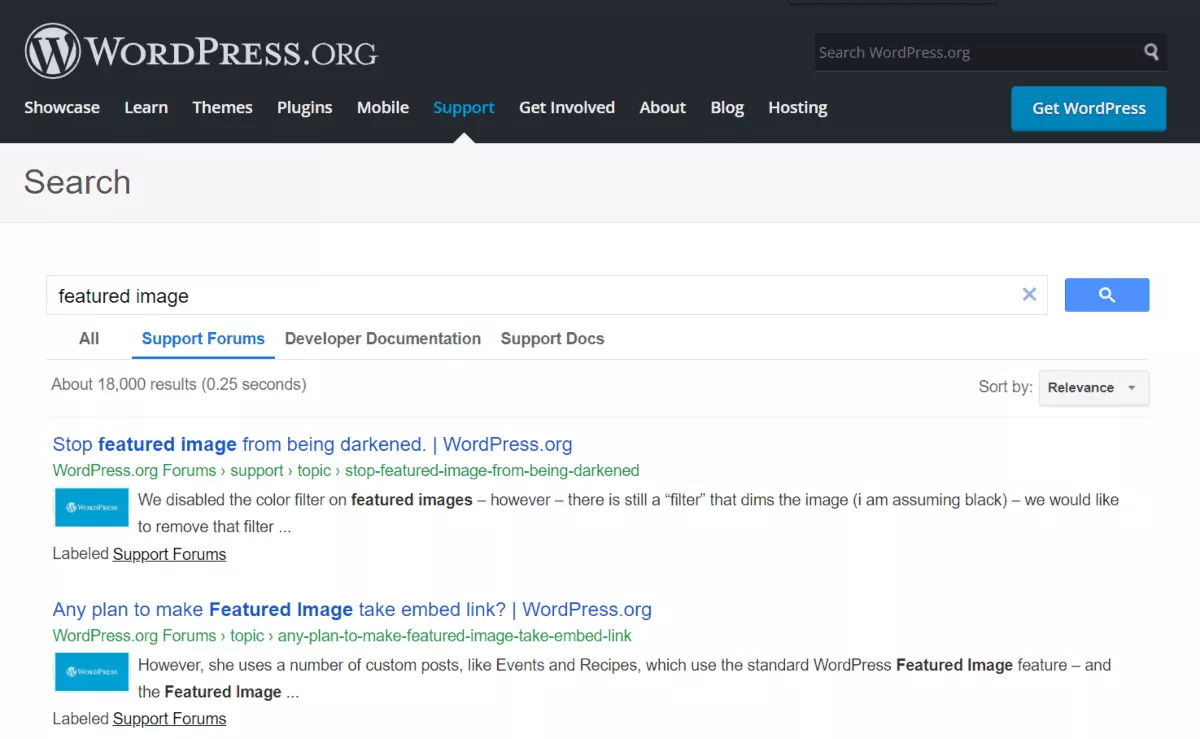WordPress or Wix? That is the question.
Many people who want to start a blog find themselves torn between these 2 popular platforms.
Different platforms come with different features and limitations. You should understand each platform’s capabilities before you spend your precious time and money.
In this article, we’ll compare WordPress and Wix and help you choose between them. We’ll cover:
Difference Between Wix and WordPress
Is Wix or WordPress Better for Bloggers?
Verdict
The short answer? In most cases, WordPress offers a better blogging experience.
The long answer? WordPress and Wix each have their own strengths, and it’s worth taking a closer look. After all, where you put your blog matters almost as much as what you put in your blog.
Let’s dive in!

WordPress and Wix are both fantastic platforms to build a website or blog. However, they take pretty different approaches.
WordPress is a Content Management System (CMS). It sounds fancy, but it’s basically a software application that helps you manage your web content. You can create, edit, and publish content easily thanks to its human-friendly interface.
Note that WordPress.org (software) is different from WordPress.com (software and hosting). In this article we only talk about WordPress.org.
Wix is a simple website builder that has a visual drag-and-drop editor. According to Wix themselves, it isn’t a “pure” CMS, but it does have “components and applications that function as part of a CMS”.
Chances are, most blogs you’ve been on are using WordPress (including ours!).
It’s currently the most popular website platform in the world, powering 41.0% of websites today (to put that in perspective, the second most popular platform, Shopify, powers only 3.4% of websites).

On the other hand, Wix is the most popular hosted website platform on the internet. It outranks its direct competitors Squarespace and Weebly in terms of traffic. BUT, Wix is nowhere near as popular as WordPress.
Why’s it matter? Because the more popular a platform is, the more resources are out there for you.
WordPress has more community support and tutorials than Wix, so if you’re stuck on something you can easily reach out to millions of users for help and/or search on Google.
Let us be clear: there’s really no correct answer to this question. It highly depends on you and your blog’s needs. The platform that works for you might not work for someone else.
However, what we can do is give our best recommendation.
We’ll be comparing Wix and WordPress with the following criteria:
Let’s get into it!
After signing up for a Wix account, you’re able to create a website in minutes.
If you’re just getting started, you should know that WordPress has a steeper learning curve than Wix. WordPress requires more technical knowledge, or at least, the resourcefulness to follow tutorials.
Plus, if you choose WordPress.org, you’ll need to set up your hosting and domain yourself. Whilst we definitely prefer choosing our own web host, it does add some extra steps to the process. Once that’s set up, it’s usually smooth sailing. Most web hosts have software that allows 1-click installations (for example through Softaculous on cPanel).
Wix, on the other hand, takes care of the hosting for you. Once you create a Wix account, you can start designing right away. No need to worry about servers and all that technical stuff.
That makes Wix great for anyone who wants to get a functional blog up and running, ASAP.
WordPress0
Wix1
Did you know that you can lose visitors just because of your website’s slow speed? It’s important that your blog is able to load quickly and stay online even during periods of higher traffic. And all those things depend on your site’s web hosting.
When we tested the performance of our test website hosted on Wix, we were impressed. It scored an A+ in our speed test tool and records a 100% uptime since July 2020 (at time of writing). That’s pretty awesome!
| US (W) | US (E) | London | Singapore | Sao Paulo |
|---|---|---|---|---|
| 41 ms | 30 ms | 96 ms | 189 ms | 141 ms |
| Bangalore | Sydney | Japan | Canada | Germany |
|---|---|---|---|---|
| 237 ms | 173 ms | 124 ms | 30 ms | 108 ms |
So, how will your blog perform if it’s built with WordPress?
It depends! As I’ve said – an amazing thing about WordPress is that it gives you total control and lets you select your own web host.
That gives you the freedom to select from the fastest and most secure hosts on the market. Personally, we much prefer the idea of hosting our site with a web host company that specializes in just that – web hosting.
Our team put multiple hosts and blogging sites to the test and found the winning combination to be WordPress + Hostinger. It’s fast, reliable, and was one of the fastest growing hosts of 2020.
WordPress1
Wix1
WordPress can be easy to use, but it highly depends on your willingness to learn.
With WordPress’s Gutenberg update, you can now use a block editor and very easily design pages and blog posts.
However, WordPress themes and plugins can easily break unexpectedly and can require some technical know-how to fix. WordPress can also often be confusing precisely because of its customizability and flexibility.
Meanwhile, Wix is highly intuitive and doesn’t require any special skills to use. It’s dead simple and accessible for beginners since they take you step by step. Even your grandma can use it. This is Wix’s biggest strength.
WordPress1
Wix2
WordPress has a huge number of plugins you can use for your blog.
There are at least 58,000+ plugins available on WordPress, both free and paid. The sheer diversity means that if you need a custom functionality for your blog, there’s probably already at least one for it.
For example, you’ll probably need a caching plugin to make your WordPress blog faster. WP Rocket and WP Super Cache are 2 popular caching plugins to pick from.
And Wix?
On Wix you can add only 200+ apps, both free and paid. Because there’s only a limited number of apps, you can’t easily use custom functionality on your blog.
If you only need conventional features, then Wix should be fine. But as your blog grows you’ll probably want more advanced features.
WordPress2
Wix2
The design potential of WordPress is almost limitless. You can modify almost every single aspect of how you want your blog to look like and work like. Some will require some tech-savviness on your part, or, if you have the budget, you might want to hire outside help.
WordPress also has thousands of free and paid themes which gives you plenty of options if you don’t want to do the design yourself.

If you want to design from scratch, you can use drag-and-drop editors like the Elementor plugin to handle visuals. Elementor is the most popular design WordPress plugin and comes with a wide array of sophisticated features, like global settings which allow you to make changes on your entire blog with just a few clicks.
This can help set apart your website from other websites in terms of design.
With Wix, however, you are much more limited. You can’t edit the underlying code, and if you don’t use apps, you’re limited to what the editor can do.
Wix has about 900+ pre-made templates. It’s a lot, but can’t compare to WordPress.
To make your website more unique, you can design from scratch using the Wix editor. However, it is worth noting again, the Wix editor, while powerful, is limited to certain features only. For example, if you want to change the design of a button, you’ll have to manually change each button’s design on your entire website. Not ideal, eh?
WordPress3
Wix2
For bloggers, the writing interface is important because you will be spending a lot of time on the blogging platforms writing blog posts.
With WordPress, you can make your blog look, feel and even act however you want it to. The possibilities are endless! The best part is it’s easy to manage layouts with the Gutenberg editor.
With Wix, the writing interface is not as satisfying to type into, nor do you have as many formatting options. Plus, you won’t be able to do things like backdate posts or make posts private.
WordPress4
Wix2
Want to switch blogging platforms? This is important because you never know what the future holds.
WordPress allows you to migrate easily by using their export tool and downloading all media files. You can even export your WordPress database.
On the other hand, Wix makes it extremely hard to change platforms. You can only export blog posts. What happens to your pages, images, videos, etc.? They can’t go anywhere. Boo.
WordPress5
Wix2
WordPress requires that you manage a lot more things yourself.
If you’re using WordPress, you’ll need to take care of things like backups and security manually. Some people aren’t great at this – it’s the reason why many opt for managed WordPress hosts like Kinsta, that have interfaces to make it easier.
With Wix, you have less to worry about. Every time you hit save or publish, a site revision is automatically created, making it easy to backup and restore your site to a previous version. Moreover, unless Wix itself (unlikely) or your Wix admin account (unlikely if you have a secure password) is hacked, your Wix site should be secure.
WordPress5
Wix3
To engage with your audience, you might want to enable comments on your blog.
WordPress comes with a native commenting system that makes it easy for users to create, edit, and delete a comment on your blog. On your end, you can also easily moderate these comments.
Wix, also comes with a commenting system. However, we’ve seen many users note that it’s slow and not easy to manage.
WordPress6
Wix3
Wix has a help center with lots of articles that answer FAQs.
WordPress has no official support, but don’t let that scare you. With WordPress’ popularity, chances are, you will be able to find the answer to your solution on your own if you practice some resourcefulness.
However, while we did mention community forums and tutorials, you are highly dependent on the community for answers.

Although rarely, it can happen that threads get no answers or that no real solutions are given, or that there are no tutorials for your problem. In that case, you can hire from thousands of developers who have the right expertise on WordPress through platforms like Codable.
Wix, unlike WordPress, provides 24/7 support through phone and email. So when you’re having problems, their customer care will help you figure it out. This can be handy especially if you’re not a very technical person. They also have an extensive help center to help you find answers for pretty much everything.
WordPress6
Wix4
The WordPress software itself is completely free, but as I mentioned, you’ll also need to purchase a web hosting plan.
Costs of web hosts vary widely. Hostinger starts from a $0.99 /mo (introductory price), whilst a more premium WordPress host like Kinsta can be upwards of $30/mo. You’ll also need to purchase a domain name.
And Wix?
Wix has a free version, but it comes with big limitations:
To really get the best of Wix, you will need a paid plan. Wix starts at $4.50/month which should be enough for a blog at the beginning stages. Eventually though, you’ll need more bandwidth and storage space and so will require a higher plan.
WordPress7
Wix4
In sum, WordPress wins on:
Our top pick for bloggers, then, is self-hosted WordPress. It’s quite possibly the most powerful and versatile blogging platform that is still user-friendly existing today.
WordPress comes with advanced capabilities that make it easier for a blogger to accomplish things, especially in the long run.
However, if you don’t need much customization and value ease of use above all else, Wix may be right up your street.
Crystal Camarao is a blogger, writer and digital marketer from the Philippines. She loves to travel as much as possible, drink IPAs, and geek out about tech. Connect with her on LinkedIn.